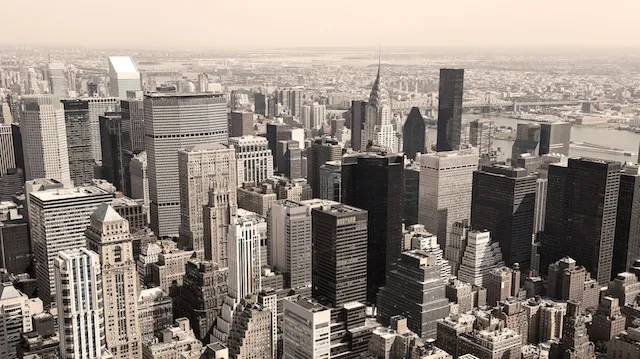
- Share on Facebook29
- Share on Pinterest
- Share on Twitter
Workers upgrading a water main were surprised after unearthing an approximately 200-year-old burial vault. The skeletons of roughly nine to 12 people were uncovered during construction on New York University’s campus, in the heart of Manhattan’s Greenwich Village.
The two-centuries-old burial site was possibly part of a Presbyterian church cemetery, according to archaeologists. One of the burial vaults, approximately 15 feet wide and eight feet deep, contained various skeletons, providing an insight into New York’s rich history.
More than a dozen wooden coffins were also exposed in a second burial vault, according to Alyssa Loorya, the lead investigator of the project for Chrysalis, an archaeological consulting firm. “You never know what you can find beneath the city’s streets,” Loorya said in news reports. “You bury people to memorialize them, and these people were forgotten.”
Chrysalis was contracted to oversee and work on the $9 million three-year project due to the area’s wealth of history. Washington Square Park, adjacent to the new excavation site was once a cemetery for those that succumbed to yellow fever in the early eighteenth century. The catacombs’ brick rooftops were uncovered Tuesday, a mere three and a half feet below street level.
 Since Tuesday, anthropologists and archaeologists have turned the worksite into an archaeological excavation site. One focus of the excavation is to identify the deceased by documenting the burial plates. Due to the city’s historical burial policies, the deceased will remain in place and water lines will be diverted around the burial site.
Since Tuesday, anthropologists and archaeologists have turned the worksite into an archaeological excavation site. One focus of the excavation is to identify the deceased by documenting the burial plates. Due to the city’s historical burial policies, the deceased will remain in place and water lines will be diverted around the burial site.
“We knew we could be encountering remains or other items in this area,” Thomas Foley, associate commissioner of the Department of Design and Construction for New York told reporters. Unsurprisingly, this is not the first time workers have unearthed historical artifacts. A Chrysalis project on Fulton Street, located in the South Street Seaport district of New York found a wide variety of eighteenth and nineteenth century historical artifacts.
The rich history of New York is often uncovered during construction projects. However, these unique glimpses into the past are not limited to just New York. In 1940, four teenagers in France chased their dog into a cave, discovering 2,000 cave paintings that dated back approximately 20,000 years. In 1991, German tourists in the Alps stumbled upon the frozen remains of Ötzi, a mummified man who had been frozen in time for 5,300 years. In 1986, scuba divers swimming off the coast of Sardinia found a 2,000-year-old Roman shipwreck.
History is fascinating and you never know what you are strolling over on your way to the office, or what lies beneath your picnic blanket in Washington Square Park, New York.
Have you ever stumbled upon something historical or fascinating?
—Stephen Seifert
Stephen Seifert is a writer, professor, adventurer and a health & fitness guru. His flair for travel and outdoor adventure allows him to enjoy culture and traditions different than his own. A healthy diet, routine fitness and constant mental development is the cornerstone to Stephen’s life.
Sources:
http://www.chrysalisarchaeology.com/projects/fultonstreetredevelopment
http://www1.nyc.gov/site/ddc/about/news-archive/19th-century-burial-vault.page
http://www.chrysalisarchaeology.com
- Share on Facebook29
- Share on Pinterest
- Share on Twitter

